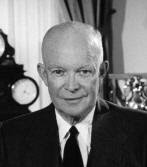At this time next year our forty-fourth President will be preparing to appoint a new cabinet, writing an inaugural address, and overseeing the transition to new leadership for the executive branch of the federal government. One third of the United States Senate will have just been elected, as will the entire House of Representatives.
Here in South Carolina we will also be electing the entire General Assembly -- all the Members of the House and Senate. For these reasons, among many others, the new year is a critical crossroads in our lives as Americans. Candidates are particularly sensitive to the will of the voters, and the year ahead offers “we the people” the opportunity to powerfully influence the direction of our state and nation and to shape the policies that will determine the kinds of lives our children and grandchildren will have.
As I think back on the great policy issues of 2007, one thing stands out. The issue of border security and illegal immigration became a national firestorm. Americans rose up as they have on very few issues to demand that our borders be secured and our laws be enforced. Having been badly burned on their amnesty bill and its “paths to citizenship” for law breakers, one would think that lawmakers would have learned a lesson. Unfortunately, some of them came back again and again trying to achieve the same end.
In the days before Christmas, as Congress was finalizing a massive spending bill to keep the federal government running, lawmakers passed a bill laden with more than eleven thousand pork barrel projects (they call them “earmarks”) worth approximately $20 billion. These projects receive almost no public scrutiny and debate.
Earlier this year Congress and the President had pledged to cut the number of pork barrel projects in half, from the 2005 peak of 13,492 to 6,746. But old habits die hard. Congress was, however, astonishingly successful at cutting one major project and its $3 billion price tag -- the border fence that Congress had previously approved and that the American people have been demanding!
Of course, efforts are underway to restore funding for the border fence. The organization that has probably done more than any other in mobilizing public opinion in support of border security and enforcing our immigration laws, NumbersUSA, has already collected volumes of signatures asking President Bush, Speaker Pelosi and Senate Leader Reid to restore funds for the border fence.
When one sees the U. S. Congress boldly defying the will of the American people, it strongly suggests that there is very strong counter-pressure from highly organized special interest groups. Legislators have determined that small, well-funded, special interests, perhaps with a financial interest in lots of cheap labor flooding into the country, can be of more help to them politically than can the vast, disorganized citizens they are supposed to represent.
There is a lesson here for us all. We need to take our responsibilities as citizens and voters very seriously. We need to challenge our representatives when they ask for our votes, and we need to hold them accountable if they betray us. A good New Years resolution would be to register on the NumbersUSA website, take advantage of the free faxes they provide for contacting the Congress, and make sure your representatives truly do represent you, and not some special interest that wants to pick your pockets for spending you oppose.
The year ahead is an exciting opportunity for all of us, working together, to ensure that our state and nation have leadership worthy of our families, our history, and our ideals.
My family and I wish you a New Year full of joy, peace, and hope. May God richly bless you in 2008 and beyond.











